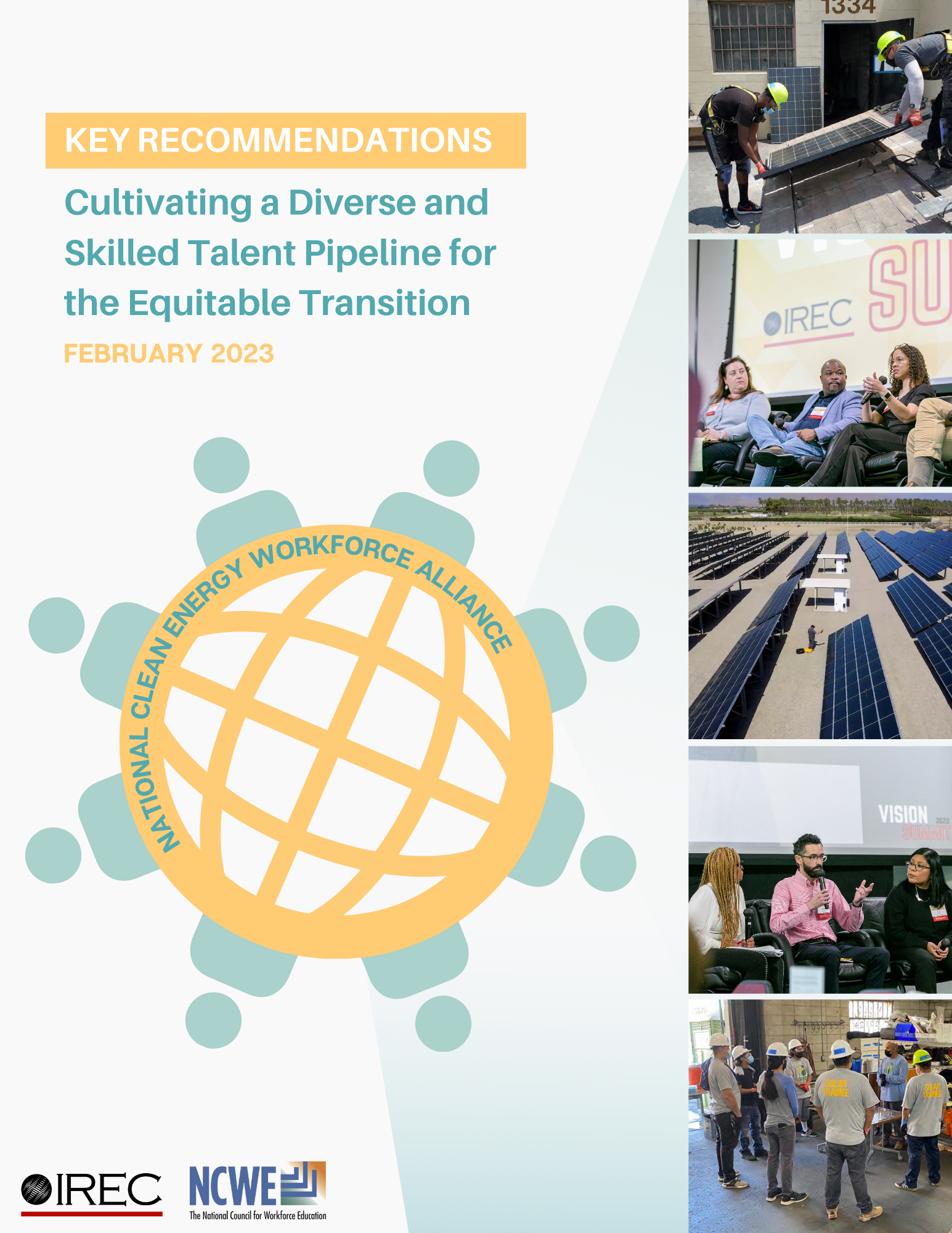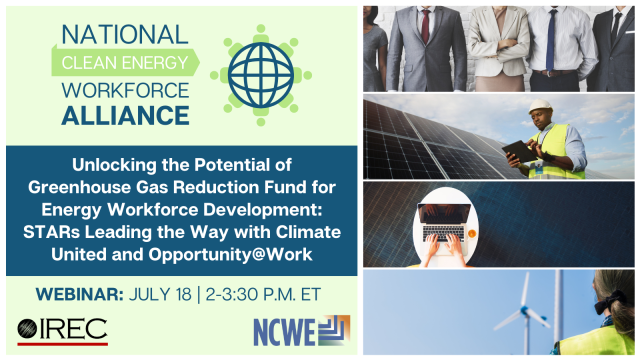Key Recommendations: Cultivating a Diverse and Skilled Talent Pipeline for the Equitable Transition
With the goal of defining actionable solutions to shared workforce challenges, the Alliance has collectively identified and shared challenges, best practices, resources, and key information through structured, results-oriented meetings.
The National Clean Energy Workforce Alliance is the sole forum uniting stakeholders across the United States’ clean energy economy to improve recruitment, education, and placement outcomes, and ensure that the clean energy transition is inclusive of diverse and underserved communities. We are stronger and more efficient together as we learn from each other and from industries that have faced similar challenges. And, we have no time to waste; the science is clear that we have a short window of time in which to avert the worst impacts of climate change.
Since January 2022, the Alliance has convened more than 500 employers, education and training providers, organized labor, community-based and energy justice organizations, workforce program designers and funders, and policymakers (see list). These convenings are grounded in the assumption that the clean energy transition can and should be just and equitable. Proceedings acknowledge and seek to address the structural issues that currently prevent equitable access to clean energy technologies and jobs.
With the goal of defining actionable solutions to shared workforce challenges, the Alliance has collectively identified and shared challenges, best practices, resources, and key information through structured, results-oriented meetings.
This report presents recommendations based on data collected from Alliance members through in-person and virtual meetings, live polls, online surveys, at the IREC Vision Summit, and from literature review. The recommendations will help funders, program designers, and those implementing workforce programs to focus resources where they will be most impactful—and most supportive of a just transition. They integrate provisions to support the development of a diverse workforce inclusive of those historically left behind.


